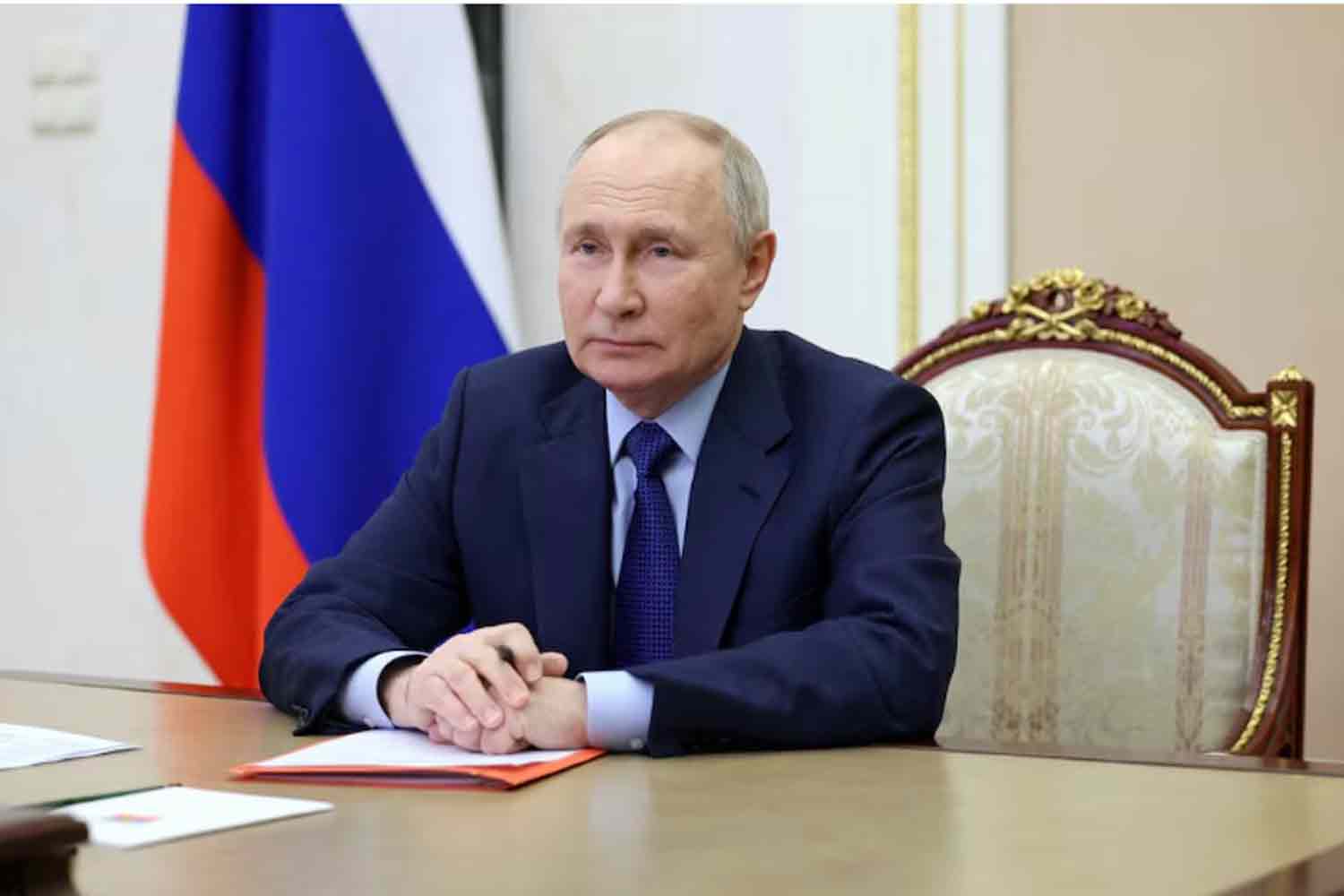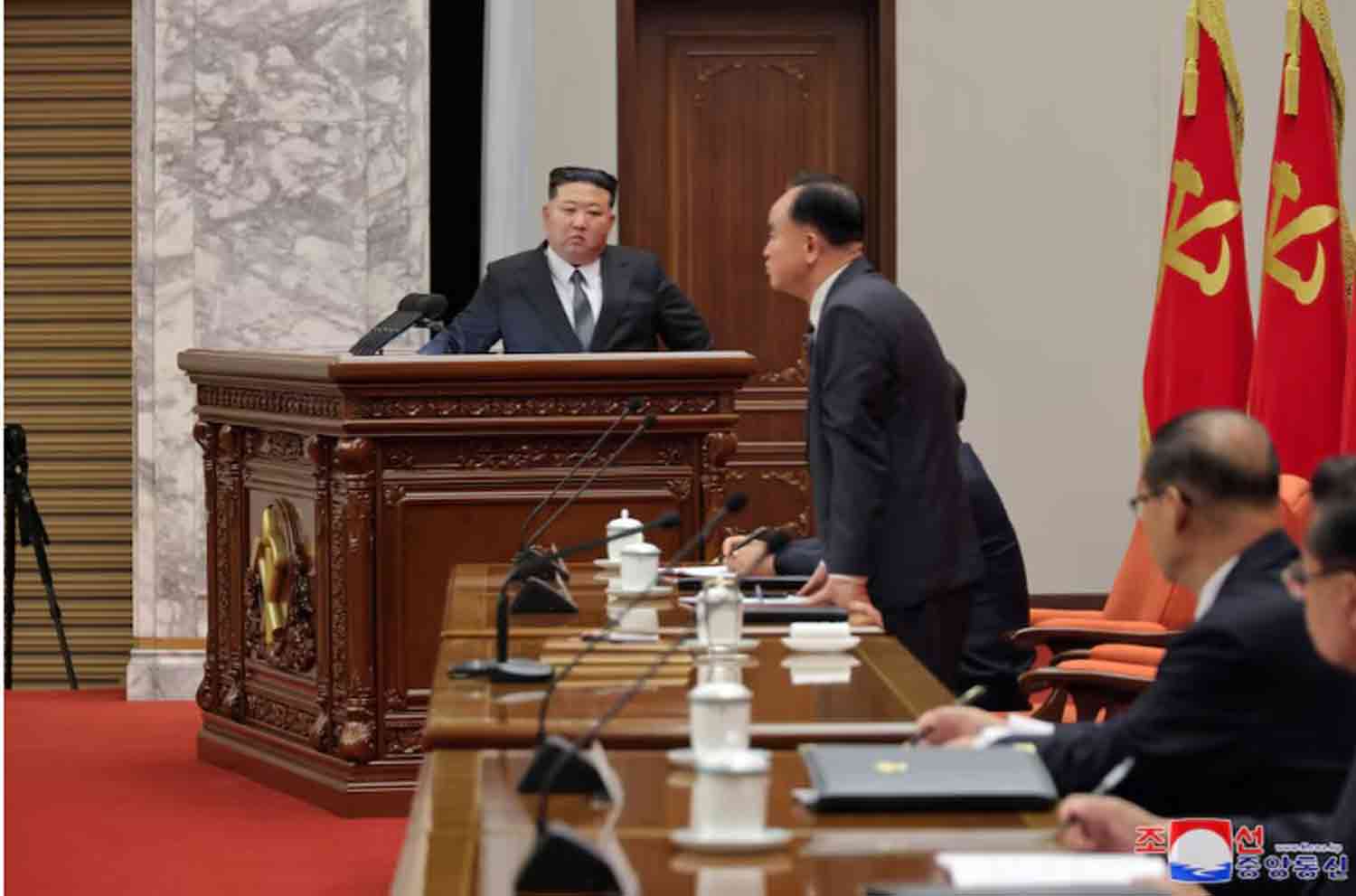On December 31, 1999, Russian President Boris Yeltsin made a surprising announcement on national television, revealing his decision to resign and hand over the presidency to his prime minister.
“Why hold onto power for an additional six months when the nation has a capable leader ready to assume the presidency, a man whom nearly all Russians are counting on for a brighter future?” Yeltsin stated, recognizing the hardships faced by ordinary citizens due to the Soviet Union’s collapse. “Why obstruct his path?”
That capable leader was relatively unknown at the time: Vladimir Putin, a former KGB officer. This New Year’s Eve marks a significant milestone, as Putin will celebrate 25 years as Russia’s foremost leader, serving both as president and during a four-year period as a dominant prime minister.
As 2024 approaches its conclusion, Putin’s hold on power seems more robust than ever. On the battlefield in Ukraine, Russian troops have made strides in a protracted war of attrition, particularly in the Donbas region. Domestically, the political arena has been largely cleared of rivals following the death of the nation’s most notable opposition figure, Alexey Navalny.
Just a month after Navalny’s passing in a remote prison located north of the Arctic Circle, the Kremlin leader easily secured reelection in a contest that allowed him to assert a significant mandate, regardless of the fairness of the process.
Putin may appear self-assured, yet new uncertainties loom ahead. US President-elect Donald Trump campaigned with a commitment to end Russia’s aggression in Ukraine. Although his strategy for achieving a negotiated resolution remains unclear, Trump has made one point explicit: he desires a swift conclusion to the conflict.
“Ending that war is one of my top priorities, and President Putin has expressed a desire to meet with me as soon as possible,” Trump stated at a recent gathering in Arizona. “We must wait for this, but it is essential to bring the war to an end.”
It is no surprise that there were no celebrations in Moscow following Trump’s reelection. Putin has invested heavily in the war in Ukraine, placing his nation’s economy on a wartime footing, strengthening ties with North Korea and Iran to sustain military operations, and finding himself on the International Criminal Court’s wanted list—all in pursuit of the ambitious goal of undermining Ukraine’s existence as a sovereign state.
Nonetheless, there are areas of overlap between Trump and Putin. The 2018 Helsinki summit demonstrated Trump’s willingness to disregard long-standing diplomatic norms, mirroring Putin’s approach, and Trump’s expressed admiration for Putin’s authoritarian style has raised concerns among US observers regarding similar tendencies domestically. However, Trump’s unpredictable foreign policy stance suggests that the Kremlin may need to brace itself for a negotiation process that could be anything but straightforward.
Retired Army Lt. Gen. Keith Kellogg, who is set to become Trump’s special envoy for Russia and Ukraine, has compared the ongoing conflict to a “cage fight” between the two nations, suggesting that Trump could act as a referee.
“You have two fighters, and both are looking to tap out; a referee is needed to step in and separate them,” he stated during an appearance on Fox Business. “I believe President Donald J. Trump has the capability to facilitate that… I think he can bring both sides to the table – eventually – for discussions.”
The practicality of this analogy remains uncertain. Recently, Ukrainian President Volodymyr Zelensky has adjusted his stance, acknowledging that Ukraine lacks the capacity to reclaim all the territory lost to Russia. Similarly, during his year-end press conference, Putin indicated a willingness to engage in negotiations, asserting, “Politics is the art of compromise. We have always maintained that we are open to both negotiations and compromises.”
However, beyond these general statements, Putin provided little in the way of concrete details, spending much of his lengthy televised session projecting an image of strength to both the Russian public and the incoming Trump administration.
For example, when NBC’s Keir Simmons questioned whether setbacks in foreign policy, such as the fall of Syrian President Bashar al-Assad, would place him in a position of weakness during negotiations, Putin responded, “We intervened in Syria a decade ago to prevent the establishment of a terrorist stronghold there, similar to what we witnessed in other nations, like Afghanistan. We have largely accomplished that objective.”
Despite the challenges faced by the Assad regime, Russia still retains some diplomatic influence in the Middle East.
Hanna Notte, the Eurasia program director at the James Martin Center for Nonproliferation Studies, a U.S.-based non-profit organization, stated that Russia retains significant leverage in Syria, particularly due to its position as a permanent member of the United Nations Security Council.
She emphasized the importance of Russia’s influence within the UN Security Council, where it holds the power to exercise its veto, which is crucial for Hayat Tahrir Al-Sham (HTS), the de facto rulers of Syria, in any discussions regarding the legitimacy of a new Syrian government. Notte remarked, “In any processes related to a political transition in a post-Assad era involving the United Nations, it is essential to ensure that Russia is not positioned unfavorably.”
On the economic front, President Putin continues to promote optimistic narratives, despite the struggles faced by ordinary Russians due to soaring food prices and a declining ruble. However, such narratives have their limits. In a recent assessment, Alexandra Prokopenko, a fellow at the Carnegie Russia Eurasia Center in Berlin, pointed out that Russia’s overstimulated wartime economy may be nearing a critical juncture.
She noted, “With each passing month, the pressure mounts. The Kremlin is nearing a tipping point where the social contract between the state and its citizens will inevitably change. Russians are increasingly being asked to tolerate growing inequality and a deterioration in their quality of life in exchange for short-term stability and a sense of national pride. Yet, even this arrangement is becoming increasingly untenable.”
Having risen to power 25 years ago on a promise of strong governance following a tumultuous decade during the Yeltsin era, Putin now faces new challenges in a time of uncertainty.
Discover more from Defence Talks | Defense News Hub, Military Updates, Security Insights
Subscribe to get the latest posts sent to your email.





